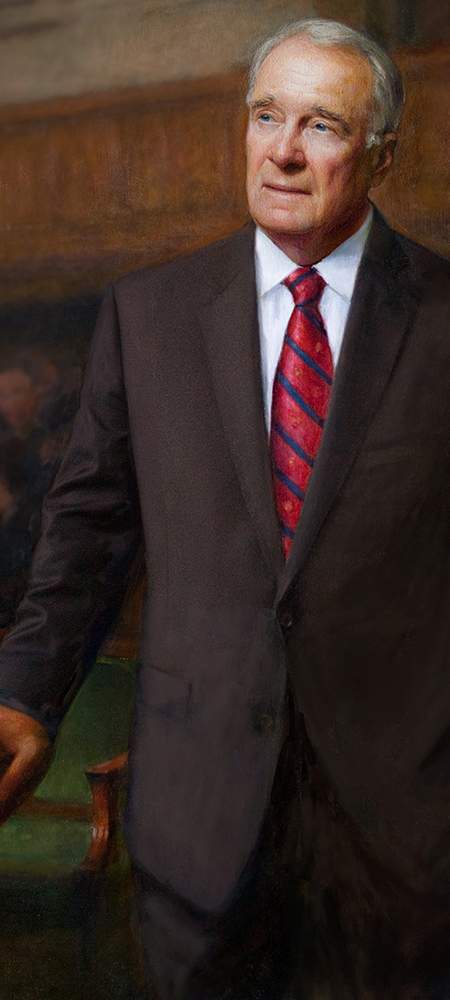Chapter
No
Paul Martin
One of Canada’s most powerful and popular politicians in the 1990s, everyone knew Paul Martin would eventually become prime minister. But then one day he did, and his career stalled. His greatest goals having already having been achieved during his eventful tenure as finance minister (1993-2003), Martin’s leadership of Canada was short and mostly uneventful.
Martin grew up in a wealthy and well-connected political family. His father, Paul Martin Sr. (1903-1992), was a high-profile minister in the cabinet of Liberal Prime Minister Lester Pearson (1897-1972) and later leader of the Senate under his successor, Pierre Elliott Trudeau (1919-2000). Paul Jr., however, initially sought a career in the private sector, eventually becoming CEO of a major Canadian shipping company, Canada Steamship Lines. At age 50, he was elected to parliament in 1988. When Jean Chretien (b. 1934) became prime minister in 1993, Martin’s corporate background made him a natural choice for finance minister.
Inheriting the job at a time when Canada was facing chronic budget deficits and record debt, Martin — a strong fiscal conservative — ushered in an era of “austerity budgets” that cut spending, reformed entitlement programs like pensions and welfare, and delegated greater responsibilities to the country’s provincial governments. Though controversial at first, the balanced budgets and high economic growth that followed helped earn Martin a reputation as a skilled fiscal manager.
Much of the later Chretien years consisted of a long-running Liberal “civil war” in which Martin supporters tried to push Prime Minister Chretien into an early retirement. In 2003 Chretien agreed to resign and Martin became prime minister, but the timing proved terrible. Scandalous accusations that the Liberal Party had engaged in a complex money-laundering scheme in Quebec during the late 1990s dominated the headlines for virtually all of Martin’s prime ministership, and in a 2004 election his Liberals lost their parliamentary majority — making him the first Canadian prime minister to befall that fate since 1979. For the next year, Martin’s minority government was tottering and indecisive, accomplishing little of note beyond the legalization of same-sex marriage. In late 2005 parliament voted “no-confidence” in his administration, triggering an emergency election. Stephen Harper’s (b. 1959) Conservatives won, campaigning on a need to “clean up” government, and Martin resigned from politics, though he still wades into political debates from time to time.
